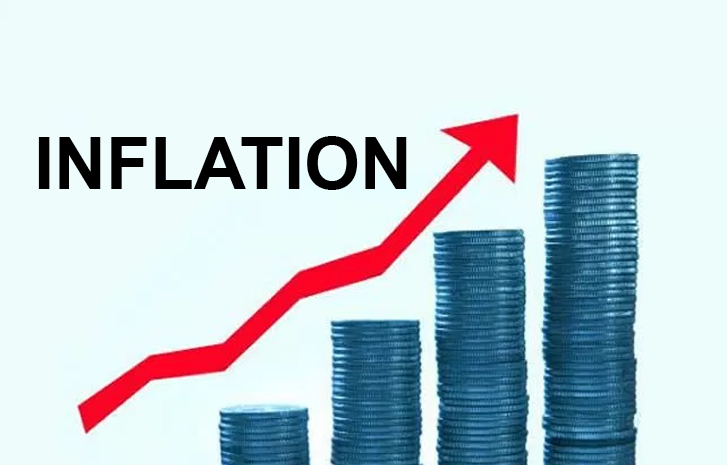Inflation is likely to flatten out in the next quarter and begin to decline afterwards as Central Bank of Nigeria (CBN) sustains interest rate hike and adoption of measures to firm up the naira, analysts have predicted.
The CBN leadership, private sector experts and industry stakeholders gave insights on how inflation will play out in the next year, and factors shaping the current figures.
In emailed note to investors, Managing Director, Financial Derivatives Company Limited, Bismarck Rewane, said inflation will continue to rise in December, but could flatten out in January and then begin to decelerate afterwards.
“Rewane said: “We expect inflation to rise further in December supported by festive demand. However, it could flatten out in January 2024 and begin to decline afterwards as the CBN maintains its hawkish monetary stance. The Monetary Policy Committee is expected to hike interest rates at its first meeting in 2024 in line with the CBN’s goal of achieving price stability”.
However, the Central Bank of Nigeria (CBN) is poised to take a potentially divergent path at its next meeting in January 2024, primarily driven by its renewed commitment to ensuring price stability. Sustained interest rate hikes will not only taper inflationary pressures but also reduce capital flights, which could lead to an appreciation in the value of the Naira.
CBN Governor, Olayemi Cardoso, said the apex bank will adopt inflation targeting framework, meant to ensure that fiscal and monetary policies are harmonized to achieve price and exchange rate stability.
He disclosed that the CBN will discontinue direct quasi-fiscal interventionist activities and instead utilize orthodox monetary policy tools for implementing monetary policy so as to refocus on its core mandate of ensuring price stability.
This refocus started with CBN’s adoption of an explicit inflation targeting framework to enhance the effectiveness of its monetary policy.
However, it is crucial to note that other factors contributing to Nigeria’s elevated inflation, such as structural issues, supply chain disruptions, and external factors, are beyond the control of domestic monetary policy. Hence, a judicious blend of fiscal and monetary policies is necessary to effectively tackle inflation.
On his part, former CBN Deputy Governor, Operations, Tunde Lemo, said inflation was being fueled by rapidly growing CBN’s Ways and Means estimated at N24 trillion.
He disclosed that Ways and Means grew from N239 billion in 2013 to N24 trillion in 2022, pushing inflation to 18-year high of 27.3 per cent in October 2023.
Besides, further linked high inflation to structural factors such as infrastructural deficit, high logistic costs, and exchange rate depreciation.
The National Bureau of Statistics released its inflation data for November last week. In line with expectations, Nigeria’s headline inflation rate climbed to a record high of 28.20 per cent from 27.33 per cent in October.
This means that so far in 2023, Nigeria had witnessed a monthly consecutive increase in headline inflation, bringing the average inflation rate to 24.12 per cent, which is significantly higher than 18.29 per cent in the corresponding period in 2022.
This steep rise largely reflects the impact of money supply saturation (M3 grew by 36 per cent y-o-y), exchange rate depreciation (currently trading at N1,230/$) and high logistics costs (diesel price remains elevated at N1,080/litre) on food prices.
This was compounded by the festive-induced boost in aggregate demand.
NBS data showed that food inflation rose by 1.32 per cent to 32.84 per cent with bread, cereals, yam, meat, vegetables, and eggs recording the highest price increases. Meanwhile, core inflation (inflation excluding volatile items like food and energy prices) fell slightly by 0.2 per cent to 22.38 per cent, an indication that the inflation momentum may be tapering.
Global commodity prices have eased from the peak witnessed during the Russia-Ukraine conflict. In November, the global food price index averaged 120.4 points, closely aligning with the October level, marking the lowest since March 2021.
The reduction in global food prices, coupled with falling energy costs (Brent is trading below $80pb), is easing inflationary pressures in advanced economies. In the US, for example, inflation has continued to decelerate, reaching 3.1% in November from the peak of 9.1 per cent in June 2022.
In the African region, the inflation trend was a mixed bag. Whilst inflation eased to 26.4 per cent in Ghana (after touching a 22-year high of 54.1 per cent in December 2022) and to 5.5 per cent in South Africa, it climbed to 12.9 per cent in Zambia and 18.19 per cent in Angola due to currency pressures.
In line with the global trend, the Bank of Ghana kept its interest rates steady at 30 per cent for the second consecutive time. South Africa’s central bank also opted to keep its key policy rate at 8.25 per cent due to declining inflation.



